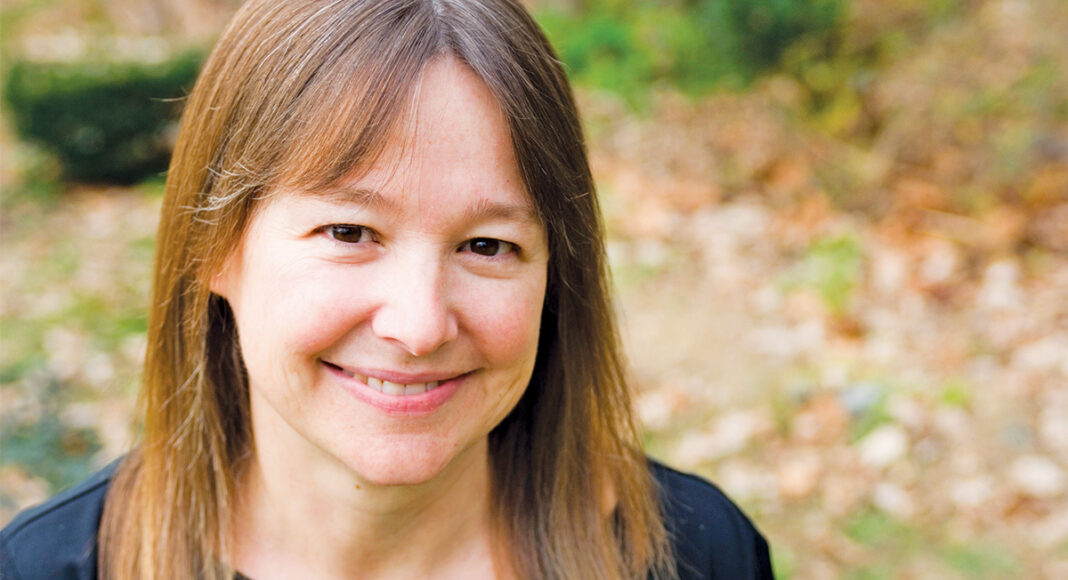Relentlessly curious and prolific, Anne Fadiman has won awards as a reporter, author, essayist and teacher, and has even been quoted in the New York Times Sunday Acrostic, which may be the ultimate compliment. Those who wonder what inspired her to reach such heights need look no further than her generous new memoir about her father, The Wine Lover’s Daughter. She spoke to GT about the book in advance of her event at Bookshop Santa Cruz this week.
Your father, Clifton Fadiman, was an author, critic, editor, radio and television personality. What was it like to grow up with such a celebrated intellectual?
ANNE FADIMAN: Not as intimidating as it sounds. I was born when my father was nearly 50, past his heyday, so the light was a little less blinding, and his references to his glory days were amusing rather than boastful. I had no idea that more than a 10th of the population of the United States had listened to my father’s radio show. I knew only vaguely that he’d spent a decade influencing America’s literary tastes as the book critic for The New Yorker.
Both your mother, Annalee Jacoby Fadiman, and your father were famous writers. How did they influence your path?
It wasn’t hard for me to imagine becoming a writer, since I’d seen my father make a living from it, and I knew that before I was born, my mother had been a well-known journalist—the only woman war correspondent in China. In other words, writers didn’t seem to starve. And my father worked at home. It was like living over the family store—you see how it’s done. My mother was the bigger influence when I wrote my first book, The Spirit Catches You and You Fall Down, a work of reportage. My father was an essayist, so he was the bigger influence when I wrote my two essay collections, Ex Libris and At Large and At Small. But it took me a long time to feel able to write essays, because that was his territory.
Wine became a big part of your father’s life and self-image. What did it mean to him, both personally and culturally?
He truly loved the taste of wine, and had a fine palate, the kind that can effortlessly discriminate among vintages. Wine also symbolized the kind of life he’d aspired to when he was growing up poor in Brooklyn. Not that he’d thought about wine then; he’d thought only about books, his other great love and an equally powerful symbol of cultivation and refinement. But after Prohibition, when he could buy wine legally in the United States, starting a wine cellar not only let him bring something he loved into his life, but also seemed like the sort of thing a gentleman would do.
You write that even though your father experienced success, he still sometimes felt like an outsider. Why did he feel that way and how did he cope with it?
Like many successful people who grew up without money, he always felt he was imitating a gentleman rather than being the real thing. He felt particularly inauthentic when he was an old man, because his childhood memories seemed more and more real, and his adult achievements less and less real every year. His insecurity both motivated his work—I’m certain that he wouldn’t have accomplished as much had he been more self-confident—and made him exasperatingly self-deprecating.
You’re the wine lover’s daughter, but not a lover of wine yourself.
After a lifetime of wondering if my inability to love wine made me an inferior human being, I visited a couple of taste scientists and did some laboratory and genetic tests, from which I learned that biology was to blame. I just don’t have the same palate as my father. However, I wouldn’t and couldn’t have written The Wine Lover’s Daughter unless I loved wine as a subject, much as my father did. The history of wine has tremendous cultural resonance for me, not to mention the fact that it reminds me of my father.
Anne Fadiman will discuss and sign ‘The Wine Lover’s Daughter’ at Bookshop Santa Cruz on Monday, Nov. 13 at 7:00 p.m. at Bookshop Santa Cruz, 1520 Pacific Ave., Santa Cruz. Free.













